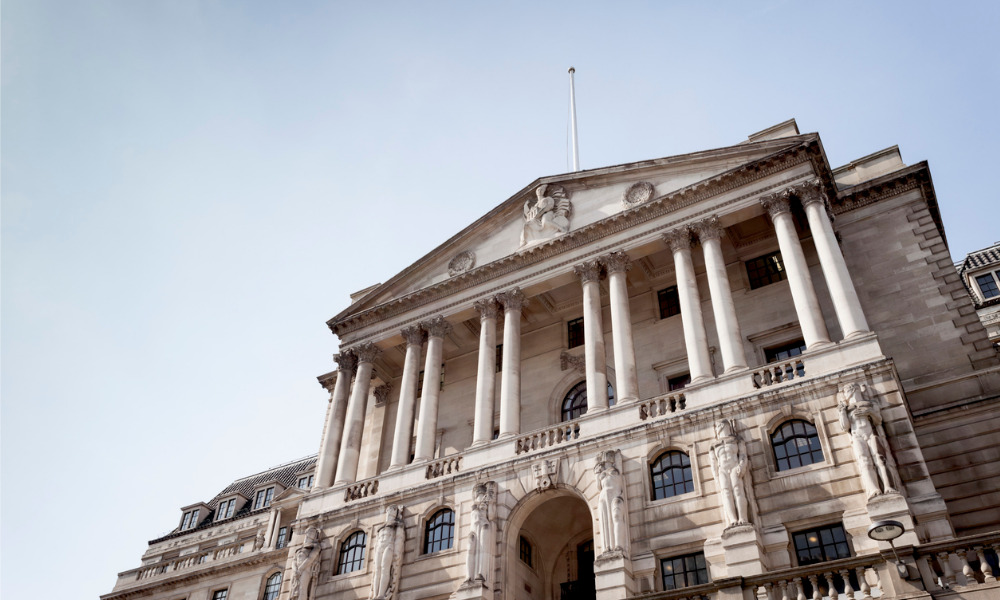Find out what happened in the vital move, just moments ago…

The Bank of England (BoE) increased interest rates to 1.25% just moments ago, as annual prices soared by 9% in April with predictions that inflation could further rise this year.
Voting 6–3, members of the BoE’s Monetary Policy Committee (MPC) decided to raise the bank rate – already at its highest level in 13 years – by 0.25 percentage points, from 1% to 1.25%. Those members in the minority preferred to increase the bank rate by 0.5 percentage points, to 1.5%.
The increase, which is the fifth consecutive since December, marks the first time that the rate has breached 1% since January 2009.
“The MPC will take the actions necessary to return inflation to the 2% target sustainably in the medium term, in line with its remit,” the bank said in its monetary policy summary.
BoE added that the scale, pace, and timing of any further increases in bank rate will reflect the MPC’s assessment of the economic outlook and inflationary pressures.
“The Committee will be particularly alert to indications of more persistent inflationary pressures, and will, if necessary, act forcefully in response,” the bank further said.
However, Philip Dragoumis, owner of financial consultant Thera Wealth Management, believe that the BoE “has been behind the curve on inflation and should have raised rates earlier.”
“The level of inflation has caught them completely unaware. Raising rates, however, will have less of an impact as UK inflation is being largely affected by external factors such as energy, tight supply chains and Brexit, which has made hiring more difficult, increasing wages,” he pointed out.
Higher rates should serve to cool the housing market though, according to Dragoumis.
Martijn van der Heijden, chief financial officer at digital home-buying service Habito, commented that inflation – now at a 40-year high – is already taking a huge toll on many UK homeowners’ monthly outgoings.
Read more: Inflation jumps to highest level in four decades.
“With higher rates, comes higher borrowing costs - for people, businesses, and the government. The Bank of England doesn’t want to risk stalling the UK’s fragile economic recovery post-COVID. So, deciding to raise interest rates and by how much is a fine balancing act,” he said.
Dominik Lipnicki, director of Your Mortgage Decisions, however, said that few believe that the base rate increase will dampen inflation.
“Our economy is faltering and the current high level of inflation is not the result of an overheating economy, so raising rates further will arguably do more harm than good,” he said.
Scott Taylor-Barr, of Shropshire-based broker Carl Summers Financial Services, had the same sentiments.
“Given that the main drivers of inflation currently are essentials such as food, fuel and energy, how is making borrowing more costly going to control price rises? I can’t see how,” Taylor-Barr remarked.
“Small businesses up and down the land have had to shoulder lockdowns, global supply chain issues and staffing issues. Now, they are potentially being asked to pay even higher costs on their outstanding borrowing too. You’d start to feel like the government was trying its hardest to force you out of business.”
Fortunately, many homeowners are on exceptionally low fixed rates and that will support their ability to maintain payments, noted Ross Boyd, founder of mortgage comparison platform Dashly.com.
“It’s what happens when they come to the end of their fixed rates that matters now. Many will be in for a serious rate shock if rates continue to rise, something that will be exacerbated if inflation is still well above target,” he said.
“Borrowers on fixed rates can breathe a big sigh of relief, at least until any existing deal comes to an end. The real pain will be felt by businesses and individuals with variable rate loans, overdrafts and credit cards,” Graham Wells, financial coach at GroWiser Financial Coaching, added.
Read more: Continued base rate rises sound alarm bells for borrowers.
Meanwhile, Lipnicki stressed that the BoE must also consider the risk of a recession and the devastating impact the current cost-of-living crisis is having on millions.
“We have already seen huge rises in mortgage rates and further base rate rises will push more and more people into financial crisis. Understandably, we are seeing more and more clients taking out longer term fixed deals when remortgaging, giving them that much needed stability,” he noted.
“With inflation set to rise further, together with the highest tax burden in more than a generation, the future for potentially millions of people is very bleak indeed.”
Lewis Shaw, founder of Mansfield-based Shaw Financial Services, said decisive action is needed now.
“As long as the Bank of England gets a grip on monetary policy as the Bundesbank Bank and Swiss National Bank did in 1970, we may head off a deep recession and minimise unemployment and the extent to which house prices may fall,” he stated.
David Robinson, co-founder and chartered wealth manager at London-based Wildcat Law, however. raised doubts about the ability of Bank of England governor Andrew Bailey to provide the “bold, contrarian thinking” that he said is needed.
“Raising interest rates at this time threatens companies that were already weakened by the global pandemic. The rising cost of debt combined with inflation risks forcing many businesses under. As much of our inflation is imported, you have the seeds of a perfect storm,” Robinson commented.
“We require some bold, contrarian thinking by the Bank of England, but unfortunately Andrew Bailey is unlikely to provide this. He appears happy to go down with the ship shouting ‘I told you so.’”



